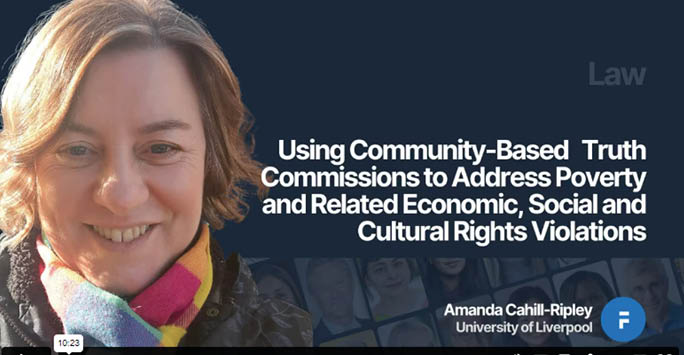
As a result of the 2008 financial crisis, and exacerbated by the austerity measures that followed, the United Kingdom’s poverty gap has continued to worsen. Those who were already in poverty have seen their situation decline further, and millions have become more vulnerable. This has resulted in increasing numbers of people not meeting the basic social and economic conditions required by international law to live a life of dignity and freedom, as determined by the International Covenant on Economic, Social, and Cultural Rights.
Economic, social, and cultural rights (ESCRs) include the right to adequate food, housing, education, health, social security, water and sanitation, work, and to take part in cultural life. All human rights, whether civil and political – or economic, social, and cultural – are interlinked, and countries are obliged to use the maximum available resources to fulfil economic, social, and cultural rights, even in times of crisis.
However, there is a growing realisation that conventional legal solutions may not suffice in addressing the systemic injustices within society, therefore researchers are exploring the viability of alternative mechanisms.
As part of Faculti’s video series, Dr Amanda Cahill-Ripley, Liverpool Law School discusses the value-added of addressing poverty and related violations of economic, social, and cultural rights (ESCRs) using alternative and additional 'justice' mechanisms drawn from the practice of transitional justice, in particular truth and reconciliation commissions (TRCs).
Watch the video on Faculti

This research evaluates the effectiveness of the UK Poverty Truth Commissions (PTCs) as a mechanism for realising justice for poverty and related human rights violations. UK PTCs comprise of people with a lived experience of the struggle against poverty and leaders within the city or region. Collectively they work to understand the nature of poverty, underlying issues that create poverty, and creative methods of addressing these issues.
Speaking of the research, Dr Amanda Cahill-Ripley, Liverpool Law School, shared:
“Whilst traditional justice mechanisms have addressed poverty on an individual basis, for example through the courts, such mechanisms are necessarily narrow in scope and have limited reach. This joint research paper with Dr Luke Graham (University of Manchester) explores more transformative social justice mechanisms which have potential for wider reach and participation, yet still fulfil the aims of justice: accountability, equality and fairness, and recompense (Lederach 2001).”
While addressing poverty and ESCR violations within the UK holds challenges, the utilisation of alternative justice mechanisms has the potential to make significant strides towards realising transformative justice and upholding the Economic, Social, and Cultural Rights of citizens.